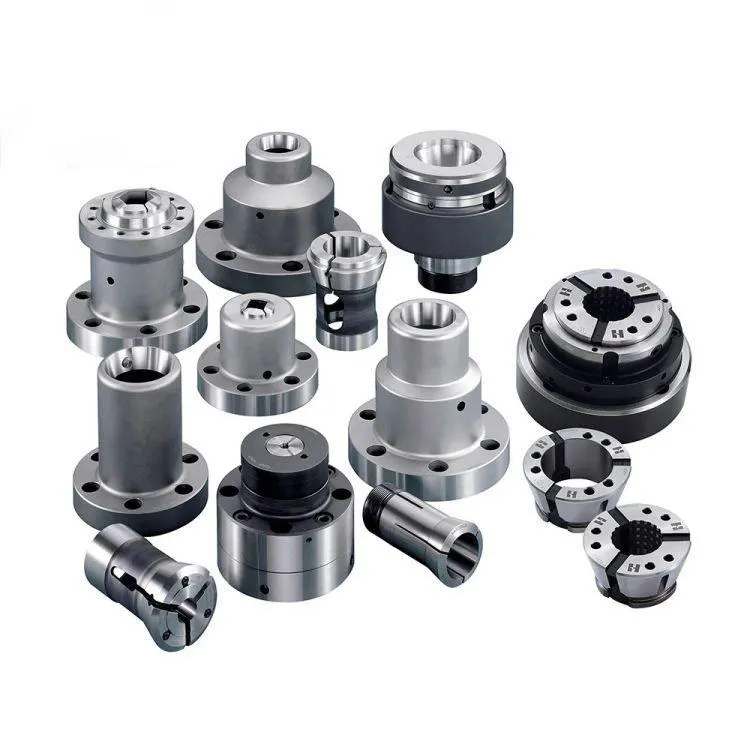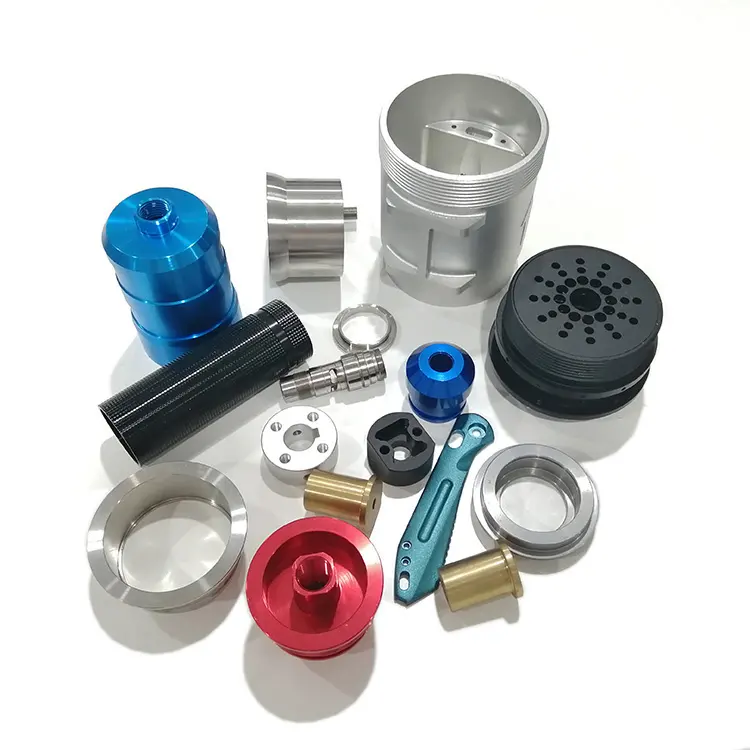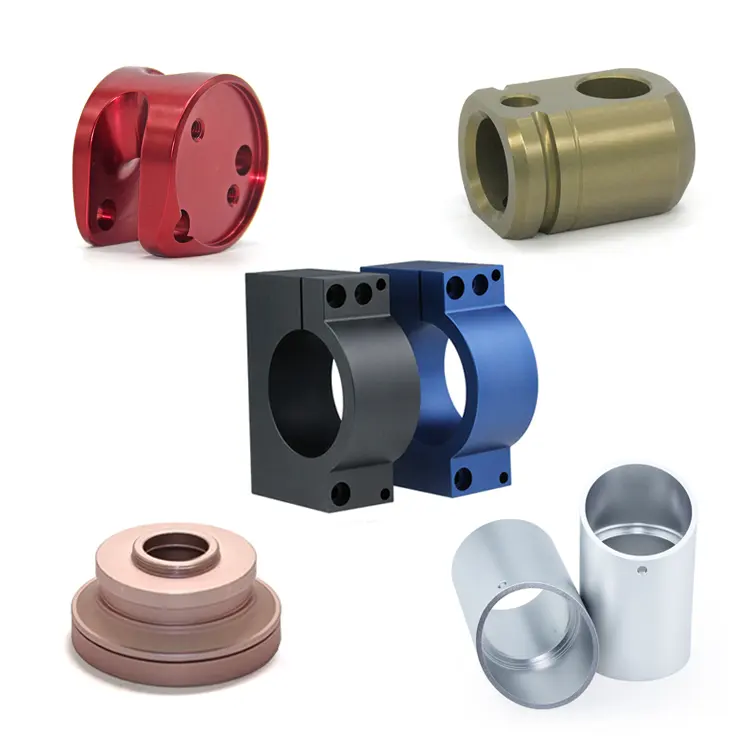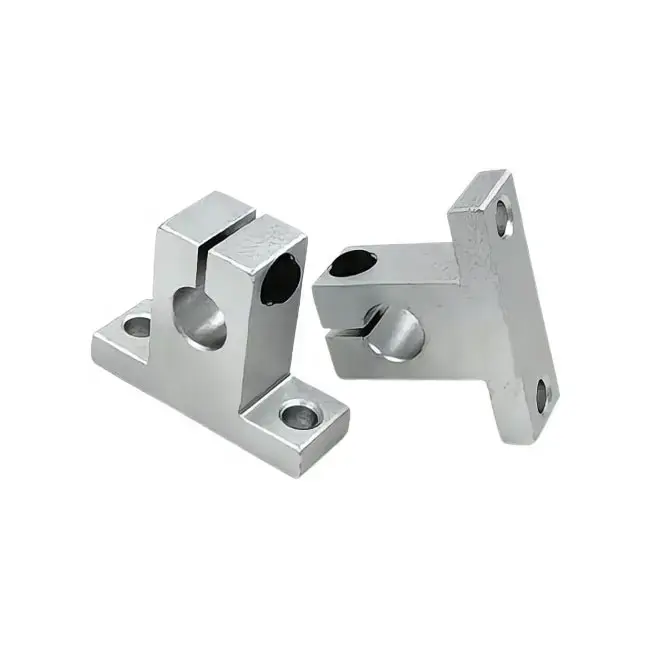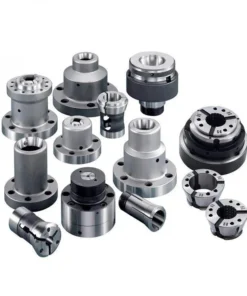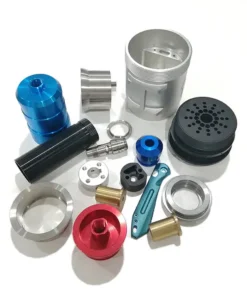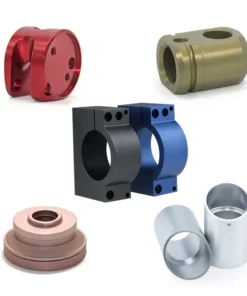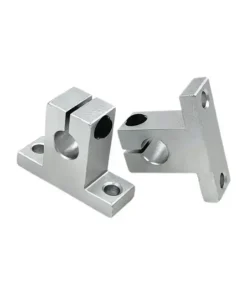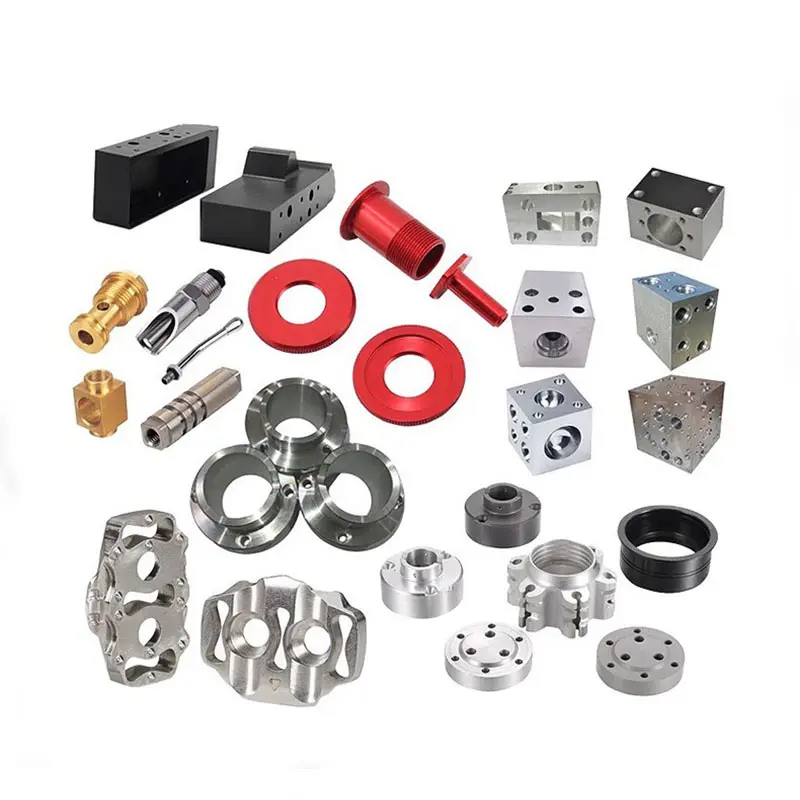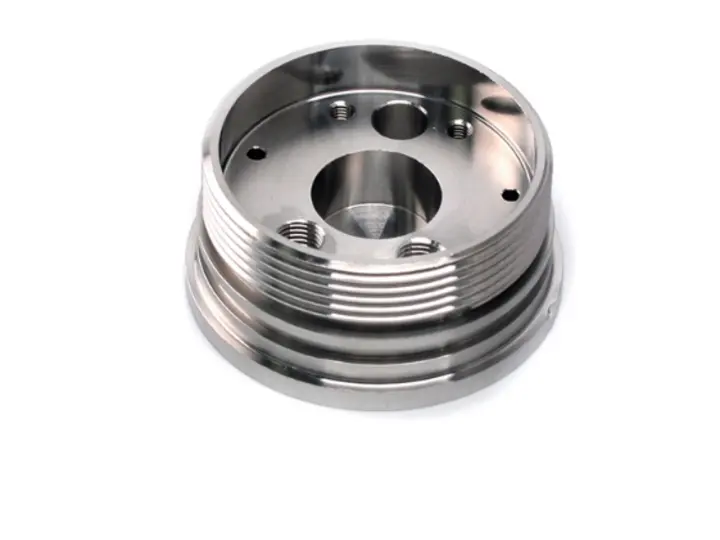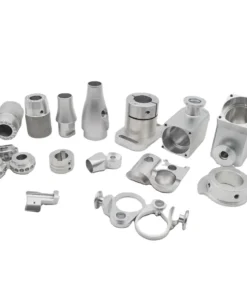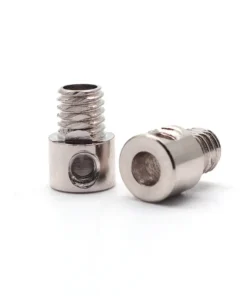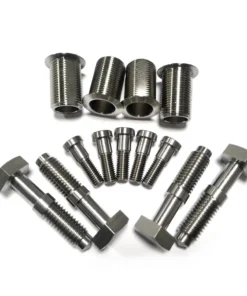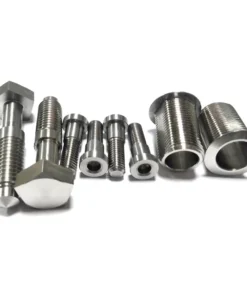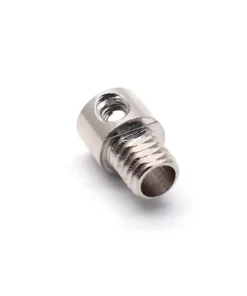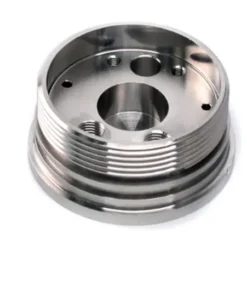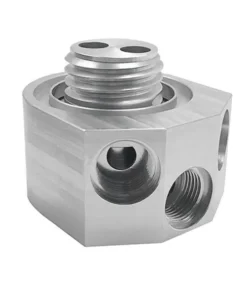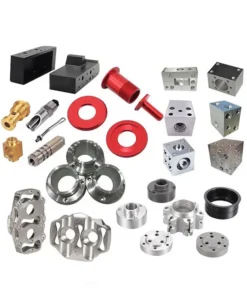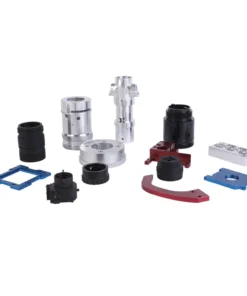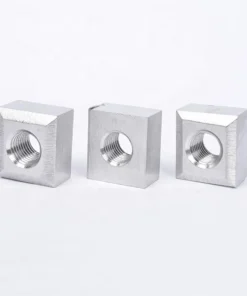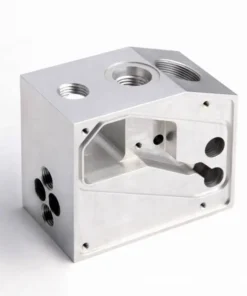Introduction to CNC Drilling Parts
In the realm of modern manufacturing, Computer Numerical Control (CNC) has revolutionized the way we approach production. Among the myriad of CNC processes, drilling stands out as a fundamental operation, ensuring precise holes in workpieces for a variety of applications. CNC drilling parts, therefore, play a pivotal role in achieving the desired accuracy and finish in products ranging from machinery components to intricate electronic devices.
What is CNC Drilling?
CNC drilling is a machining process that employs computerized controls to drive and manipulate drill bits, ensuring precise and repeatable hole patterns in a workpiece. Unlike manual drilling, where the operator’s skill is paramount, CNC drilling relies on pre-programmed software commands, ensuring consistent results regardless of the complexity or volume of the task.
Significance in Modern Manufacturing
The demand for precision and consistency in manufacturing has never been higher. As industries evolve and products become more complex, the margin for error narrows. CNC drilling parts, with their ability to deliver exact specifications repeatedly, have become indispensable. They cater to sectors like aerospace, automotive, electronics, and medical devices, where even a minute discrepancy can lead to significant functional or safety concerns.
Overview of the Article
This article aims to provide a comprehensive insight into the world of CNC drilling parts, emphasizing their importance and the unparalleled expertise of Wuxi Lead Precision Machinery in this domain. We will explore the nuances of CNC drilling machines, the advantages of sourcing these parts from China, and the custom solutions offered by Wuxi Lead. Additionally, potential buyers will find valuable tips on choosing the right supplier and a dedicated FAQ section addressing common queries.
The Evolution of CNC Drilling
The journey of CNC drilling is a testament to the relentless pursuit of precision and efficiency in manufacturing. From rudimentary manual drills to sophisticated CNC machines, the evolution has been transformative.
A Glimpse into the Past
Historically, drilling was a manual process, heavily reliant on the operator’s skill and expertise. While effective, it lacked consistency, especially for large-scale production. The introduction of numerical control (NC) in the mid-20th century marked the beginning of a new era. These early machines, controlled by punch cards, were the precursors to modern CNC systems.
The Advent of CNC Drilling
With the fusion of computer technology and traditional NC systems, CNC drilling emerged. These machines, controlled by computer software, offered unparalleled precision, repeatability, and speed. The ability to store and execute complex drilling patterns made them indispensable for industries requiring intricate designs and tight tolerances.
The Role of Precision Machinery in Enhancing Drilling Accuracy
As CNC technology advanced, so did the machinery. Modern CNC drilling machines, equipped with high-speed spindles, multi-axis capabilities, and advanced feedback systems, can achieve accuracies in the micrometer range. This precision is further enhanced by companies like Wuxi Lead Precision Machinery, which invest in state-of-the-art equipment and continuous training for their workforce.
Understanding CNC Drilling Machines
At the heart of every precisely drilled component lies a sophisticated CNC drilling machine. Understanding its components and working principle is crucial for appreciating the precision it delivers.
Basic Components of a CNC Drilling Machine
- Spindle: The primary component that holds and rotates the drill bit.
- Table: Supports the workpiece and can move in multiple directions to facilitate precise drilling.
- Control Panel: The interface where operators input commands and monitor the drilling process.
- Coolant System: Ensures optimal temperature by cooling the drill bit and workpiece during operation.
- Tool Changer: Allows the machine to switch between different drill bits or tools without manual intervention.
Working Principle
A CNC drilling machine operates by interpreting a Computer-Aided Design (CAD) file. The software translates this design into a series of commands. The machine then executes these commands, moving the drill bit in precise patterns and depths to create the desired holes in the workpiece.
Differentiating CNC Drilling from Other CNC Processes
While CNC encompasses various machining processes, drilling is specifically focused on creating holes. Unlike milling, where material is removed to achieve a particular shape, or turning, where the workpiece rotates against a stationary tool, drilling is solely about precision holes.
Wuxi Lead Precision Machinery: Leading the Way in CNC Drilling
In the competitive landscape of CNC drilling parts manufacturers, Wuxi Lead Precision Machinery stands out, not just as a supplier but as a partner committed to excellence.
Introduction to Wuxi Lead Precision Machinery
Established as a beacon of precision engineering in China, Wuxi Lead Precision Machinery has carved a niche for itself in the domain of CNC drilling. With a state-of-the-art facility, a team of seasoned professionals, and a relentless pursuit of perfection, Wuxi Lead has become synonymous with quality CNC drilling parts.
Company’s Commitment to Quality and Precision
Every component that leaves the Wuxi Lead facility is a testament to the company’s commitment to quality. From sourcing the finest raw materials to employing advanced CNC drilling machines, every step is calibrated for precision. Rigorous quality checks, adherence to international standards, and a client-centric approach make Wuxi Lead a preferred choice for businesses worldwide.
Types and Applications of CNC Drilling Parts
The versatility of CNC drilling is evident in the vast array of parts it can produce. From simple holes in metal sheets to intricate patterns in aerospace components, CNC drilling caters to a myriad of requirements.
Different Types of CNC Drilling Parts
- Through Holes: These are holes that pass completely through the workpiece.
- Blind Holes: Holes that do not go all the way through the material.
- Tapped Holes: Holes with internal threads, ready for screws or bolts.
- Counterbored and Countersunk Holes: Holes designed to allow screw heads to sit flush with or below the surface of the material.
- Complex Geometric Patterns: For specialized applications, CNC drilling can create intricate patterns with multiple hole sizes and depths.
Industries Benefiting from CNC Drilling
- Aerospace: Precision is paramount in aerospace components. CNC drilling ensures accurate holes for rivets, bolts, and other fasteners.
- Automotive: From engine blocks to brake components, CNC drilling plays a crucial role in the automotive industry.
- Electronics: Circuit boards, casings, and other electronic components often require precise drilling for assembly and functionality.
- Medical Devices: Surgical instruments, implants, and other medical devices benefit from the precision and consistency of CNC drilling.
- Construction: Structural components, fixtures, and fittings often require drilling for assembly and installation.
Advantages of Sourcing CNC Drilling Parts from China
China, as a global manufacturing powerhouse, offers several advantages for businesses looking to source CNC drilling parts.
- Cost-Effective Production: Advanced manufacturing facilities and economies of scale allow Chinese manufacturers to offer competitive prices without compromising on quality.
- Skilled Workforce: With a rich history in manufacturing, China boasts a skilled workforce adept at handling complex CNC drilling tasks.
- Rapid Turnaround: Efficient production processes and logistics networks ensure swift deliveries, even for bulk orders.
- Customization Capabilities: Chinese manufacturers, especially companies like Wuxi Lead, excel in providing tailored solutions, catering to specific client requirements.
Factors to Consider When Choosing a CNC Drilling Parts Supplier
Selecting the right CNC drilling parts supplier is pivotal for ensuring the success of any project. Here are some key considerations:
- Quality Assurance: Always prioritize suppliers with a proven track record of delivering high-quality components. Certifications, client testimonials, and sample components can offer insights into a supplier’s commitment to quality.
- Technical Expertise: The supplier’s technical know-how can significantly impact the precision and quality of the drilled parts. Ensure they have the necessary expertise and advanced machinery to handle complex requirements.
- Pricing: While cost-effectiveness is essential, it shouldn’t come at the expense of quality. Strike a balance between competitive pricing and component quality.
- Delivery Timelines: Assess the supplier’s capability to meet delivery deadlines, especially for bulk orders. Delays can have cascading effects on project timelines.
- Customer Support: A responsive and knowledgeable customer support team can make the sourcing process smoother, addressing queries and concerns promptly.
Questions International Buyers Should Ask Chinese Suppliers
Engaging with a supplier, especially from overseas, necessitates due diligence. Here are some pivotal questions for international buyers:
- What materials do you commonly use for CNC drilling parts? Understanding the material quality and sourcing can offer insights into the component’s durability and performance.
- Can you share some case studies or client testimonials? Real-world examples can provide a tangible sense of the supplier’s capabilities and track record.
- How do you handle custom CNC drilling requests? Assessing the customization process can help align project requirements effectively.
- What are your lead times, especially for bulk orders? This aids in project planning and ensures timely deliveries.
- Do you offer post-purchase support? After-sales support, especially for custom components, can be crucial for addressing any unforeseen challenges or requirements.
FAQ Tips for CNC Drilling Parts
1. How does CNC drilling ensure precision in hole dimensions?
- CNC drilling machines use computerized controls and advanced feedback systems, ensuring holes are drilled to exact specifications every time.
2. Can Wuxi Lead handle intricate drilling patterns?
- Absolutely! Wuxi Lead’s advanced machinery and skilled professionals can craft complex drilling patterns with precision.
3. What materials are best suited for CNC drilling at Wuxi Lead?
- Wuxi Lead works with a range of materials, including metals, alloys, and plastics, ensuring optimal results based on the application.
4. How does Wuxi Lead manage quality control for its CNC drilling parts?
- Every component undergoes rigorous quality checks using advanced measuring instruments, ensuring adherence to specified tolerances and standards.
5. Are there any minimum order quantities at Wuxi Lead?
- Wuxi Lead caters to diverse requirements, from small batches to bulk orders. Specific order quantities can be discussed directly with the company.
6. Can international clients inspect the manufacturing process at Wuxi Lead’s facility?
- Yes, Wuxi Lead welcomes potential clients to visit their facility, offering a transparent view of their production processes and quality control measures.
7. How does CNC drilling compare to traditional drilling methods?
- CNC drilling offers superior precision, repeatability, and efficiency compared to manual drilling, making it ideal for complex and large-scale projects.
8. What post-purchase support does Wuxi Lead offer?
- Wuxi Lead provides comprehensive after-sales support, addressing any concerns or requirements clients might have post-purchase.
9. How does Wuxi Lead ensure the durability of its CNC drilling parts?
- By using high-quality materials and adhering to stringent manufacturing standards, Wuxi Lead ensures the durability and longevity of its CNC drilling parts.
10. Can Wuxi Lead provide samples before finalizing a bulk order?
- Yes, Wuxi Lead offers sample components, allowing clients to assess the quality and precision firsthand.


